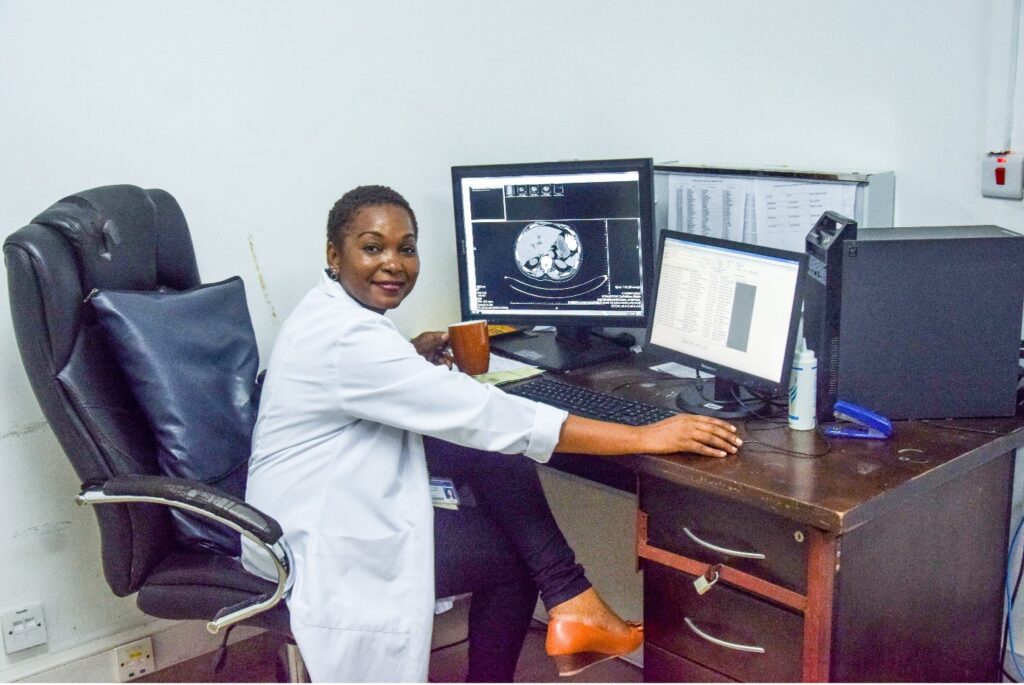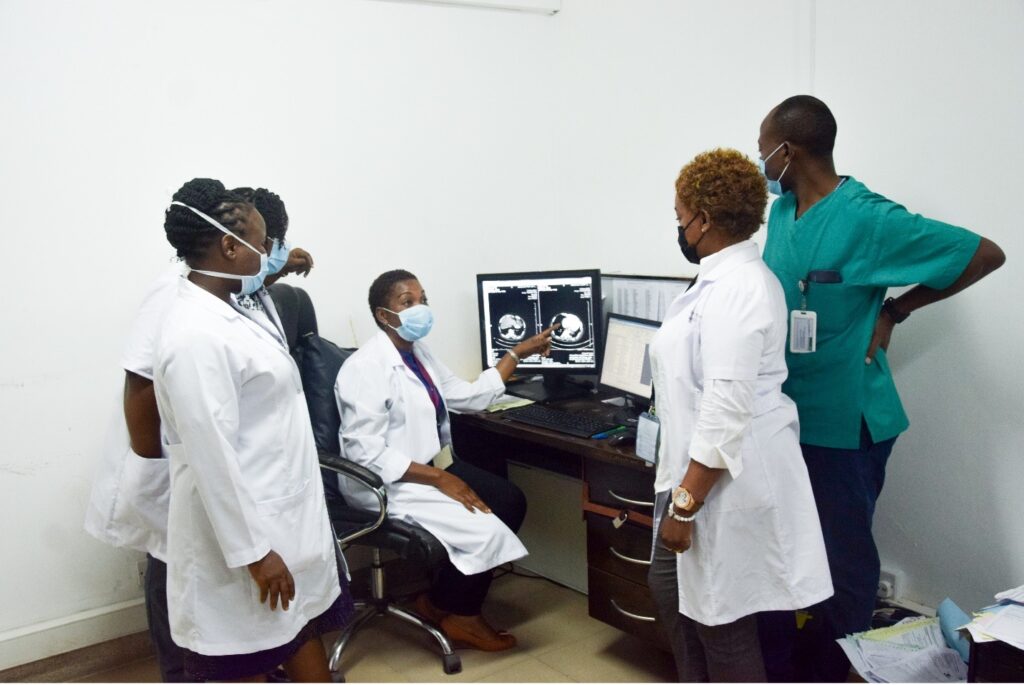Strengthening diagnostic medical imaging in Tanzania through Research4life
By Dr. Mboni Ruzegea, Director General of Tanzania Library Services Board and National Library.
The use of imaging technology to diagnose and treat local endemic diseases is gaining pace in Tanzania. Thanks to the increased availability of evidence-based research, radiologists in Tanzania increasingly need high-quality, relevant and updated information about medical imaging. Research4Life, which offers access to tens of thousands of academic and professional resources, can make a difference, says radiologist Dr. Lulu Fundikira of the Muhimbili University of Health and Allied Sciences (MUHAS).

Dr. Lulu Fundikira is a young doctor and an avid user of Research4Life, specifically Hinari, which she can access through the MUHAS library. Dr. Fundikira, known as Dr. Lulu, is an experienced multi-tasker. She is a radiologist, lecturer and researcher in the Department of Radiology and Imaging in the School of Medicine. Her professional experience highlights a continuous need for relevant and high-quality information in her field to enhance evidence-based radiology.
“I was introduced to Research4Life about five years ago, when I attended a course on online data searching,” Dr. Lulu explains. “Its Hinari program is now my main source of current and accurate scientific information and helps me to achieve my main goals: teaching, clinical work, research as well as consultancies.”
In the past, Dr. Lulu frequently was halted by paywalls, making it impossible to access relevant and current information. “I was able to do good scientific searches, but then I found scientific information that was usually not available to me. Most search engines have limitations in accessing full articles, as you need to purchase them,” she says. “Using Research4Life, I have been able to access most articles, which as enriched and improved my research results and output.”
“Sometimes slow internet access or issues with my internet provider at home can cause some difficulties, but I’ve never really experienced any serious challenges when using Hinari.” Nevertheless, some knowledge is required to use the platform effectively. “For example, when you do a data search in PubMed and then you want to do a similar search in a different database, you might need a different approach, even though the information mined in the site is the same.”
Multi-tasking
As a scientist, medical doctor and a lecturer, Dr. Lulu searches information through Research4Life for her clinical work and to prepare for her classes. As a supervisor, Dr. Lulu has become a powerful inspiration for students pursuing a Master’s degree in Medicine. She encourages them to choose Research4Life for their research. “Since it gives access to current and updated data, it allows for better formulation of research questions and also allows the versatility to rephrase the questions as well as methodology.”
The use of ICT at MUHAS has immensely contributed to students’ awareness and effective usage of Research4Life. Since the university’s foundation in 2007, the MUHAS library has been training faculty and postgraduate students in ICT and information literacy skills, specifically on how to use online resources to improve teaching, research, clinical and consultancy practices.

Currently, Dr Lulu is doing her PhD on dilated cardiomyopathy, a disease that causes the heart muscle to weaken, in Sub-Saharan Africa. “I found relevant data from databases accessible through Research4Life, such as PubMed and MBASE. This way, I was able to collect information that allowed me to write and publish a protocol in January. I am currently working on data sorting and analysis for the systematic review and I expect to publish this manuscript once it is done.”
“The information I get through Research4Life, allows me to teach, do clinical work, and even improves clinical outcomes, because it helps me do better radiological diagnoses.
Community wellbeing
“Dilated cardiomyopathy can be genetic, so one aspect of my research is to do family screenings. I go out to people without symptoms to identify if they are at risk. This helps us get better, early diagnoses and improves disease management and the overall wellbeing of a community. This has a long-term impact. All of this has been possible because I have access to Research4Life. I have access to this information, I can do this kind of research, and in the future, once I have my papers ready, I expect this to influence policy-making.”
Gaps still exist in developing countries like Tanzania regarding awareness and proper usage of evidence to improve teaching, research and policymaking practices in various sectors. With today’s cutting-edge technology in clinical imaging diagnostics, more relevant and updated information is required to improve patient outcomes and general wellbeing of people, especially in remote under-resourced communities.
Dr. Lulu’s delivery is exemplary: it is difficult to dispute that her academic and clinical success is closely linked to her access to and effective use of Research4Life. Examples from practitioners like Dr. Lulu attest that Research4Life is revolutionizing the healthcare sector in Tanzania. To excel, researchers, clinicians and other healthcare professionals should continue to use evidence-based health information such as those found freely or at a low cost through Research4Life to inform their practices. Additional training in evidence practice will help them with efficient and effective decision-making and improve excellence in care delivery.





